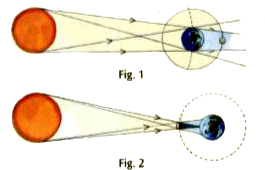What are the disadvantages of using a solar cooker ? Are there places where solar cookers would have limited utility ?
Step-by-Step Solution:
1. Identify the Disadvantages of Solar Cookers:
- Cost: Solar cookers can be expensive to purchase or build, which may deter some users from adopting this technology.
- Dependence on Sunlight: Solar cookers require direct sunlight to function effectively. On cloudy days or during nighttime, they cannot be used, limiting their practicality.
- Cooking Time: Solar cookers generally take longer to cook food compared to conventional cooking methods, which may not be suitable for everyone.
- Temperature Limitations: They may not reach high temperatures necessary for certain cooking methods, such as frying or baking.
2. Determine Places with Limited Utility for Solar Cookers:
- Regions with Frequent Cloud Cover: Areas that experience a lot of cloudy weather throughout the year would find solar cookers less effective.
- Polar Regions: Locations near the poles, where daylight hours are very short during certain seasons, would also limit the utility of solar cookers.
- Urban Areas with High Buildings: In cities with tall buildings, sunlight may be obstructed, reducing the effectiveness of solar cookers.
3. Summarize the Findings:
- In summary, while solar cookers have advantages such as being environmentally friendly and cost-effective in the long run, their disadvantages include high initial costs, dependence on sunlight, longer cooking times, and temperature limitations. Additionally, their utility is limited in regions with frequent cloud cover, short daylight hours, or urban settings with obstructions.
- Cost: Solar cookers can be expensive to purchase or build, which may deter some users from adopting this technology.
- Dependence on Sunlight: Solar cookers require direct sunlight to function effectively. On cloudy days or during nighttime, they cannot be used, limiting their practicality.
- Cooking Time: Solar cookers generally take longer to cook food compared to conventional cooking methods, which may not be suitable for everyone.
- Temperature Limitations: They may not reach high temperatures necessary for certain cooking methods, such as frying or baking.
- Regions with Frequent Cloud Cover: Areas that experience a lot of cloudy weather throughout the year would find solar cookers less effective.
- Polar Regions: Locations near the poles, where daylight hours are very short during certain seasons, would also limit the utility of solar cookers.
- Urban Areas with High Buildings: In cities with tall buildings, sunlight may be obstructed, reducing the effectiveness of solar cookers.
- In summary, while solar cookers have advantages such as being environmentally friendly and cost-effective in the long run, their disadvantages include high initial costs, dependence on sunlight, longer cooking times, and temperature limitations. Additionally, their utility is limited in regions with frequent cloud cover, short daylight hours, or urban settings with obstructions.
Topper's Solved these Questions
Similar Questions
What are the dark lines seen in the solar spectrum called ?
View SolutionWhat is solar year?
View SolutionWhat is the energy transformation in a solar cell?
View SolutionIn solar cooker, we use concave mirrors.
View SolutionWhat are the main steps in aerobic respiration? Where does it take place?
View Solution
When does a solar eclipse take place?
View SolutionMention three advantages and three disadvantage of producing hydroelectricity by building dams on rivers.
(b) given reason for the following
(i) A solar cooker box is covered with a glass plate
(ii) A solar cooker box is painted black from inside
View SolutionAt the time of total solar eclipse, the spectrum of solar radiation would be
View SolutionWhat is a solar cell? State two uses of solar cells. State whether solar cell produces a.c. or d.c. Give one disadvantage of using a solar cell.
View SolutionWhat is solar energy? How is solar energy used to generate electricity in a solar power plant?
View Solution
